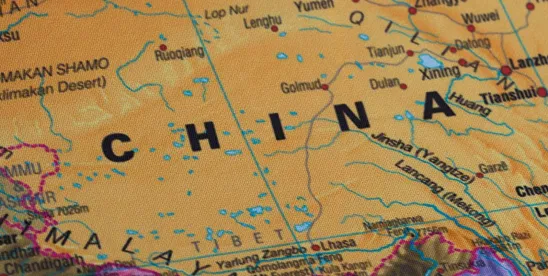In follow up to the State Administration for Market Regulation’s (SAMR) draft of August 9, 2024, China’s State Council has released the final version of the Antitrust Guidelines for the Pharmaceutical Sector (国务院反垄断反不正当竞争委员会关于药品领域的反垄断指南) on January 24, 2025. Of specific interest to patentees are the regulations on reverse payments and evergreening, translations of which follow. The existence of patents can also used in the determination of a dominant market position.

Article 13 Reverse Payment Agreement
There is an actual or potential competition relationship between the patent holder of the generic drug and the generic drug applicant. If the patent holder of the generic drug gives or promises to give direct or indirect benefit compensation to the generic drug applicant without justifiable reasons, and the generic drug applicant makes a reverse payment agreement with non-competition commitments such as not challenging the validity of the patent right related to the generic drug, delaying entry into the market related to the generic drug, or not selling generic drugs in a specific region, it may constitute a monopoly agreement prohibited by Article 17 of the Anti-Monopoly Law.
To analyze whether a reverse payment agreement constitutes a monopoly agreement, the following factors may be considered:
(1) Whether the compensation given or promised by the patent owner of the generic drug to the generic drug applicant obviously exceeds the cost of resolving disputes related to the generic drug patent and cannot be reasonably explained;
(2) Whether the agreement substantially prolongs the market exclusivity period of the generic drug patent holder or hinders or affects the entry of generic drugs into the relevant market;
(3) Other factors that exclude or restrict competition in the relevant market.
Article 27 Other acts of abuse of dominant market position [Evergreening]
If a pharmaceutical operator purchases goods at unfairly low prices, sells goods at prices below cost, or engages in other abuses of market dominance as determined by the anti-monopoly law enforcement agency of the State Council, the analysis will be based on Chapter III of the Anti-Monopoly Law and the Provisions on Prohibition of Abuse of Market Dominance.
If a drug patent holder with a dominant market position obtains new drug patents by redesigning existing patented technical solutions and adopts measures such as stopping sales and repurchasing to achieve product switching from original patented drugs to new patented drugs, thereby hindering generic drug operators from effectively competing, it may constitute an abuse of market dominance prohibited by Article 22, paragraph 1, item 7 of the Anti-Monopoly Law.
To analyze whether product redirection behavior constitutes an abuse of market dominance, the following factors may be considered:
(1) Whether the new patented drug fails to significantly improve the drug’s use or efficacy, or significantly enhance the drug’s safety, etc.;
(2) When implementing the conversion from the original patented drug to the new patented drug, whether the relevant business operator has planned to launch a generic drug;
(3) Whether the conversion of the original patented drug to the new patented drug hinders or affects the entry of generic drugs into the relevant market or their effective competition;
(iv) whether the range of choices for patients and physicians will be substantially restricted;
(5) Whether there are legitimate reasons.
The full text is available here (Chinese only).



 />i
/>i

